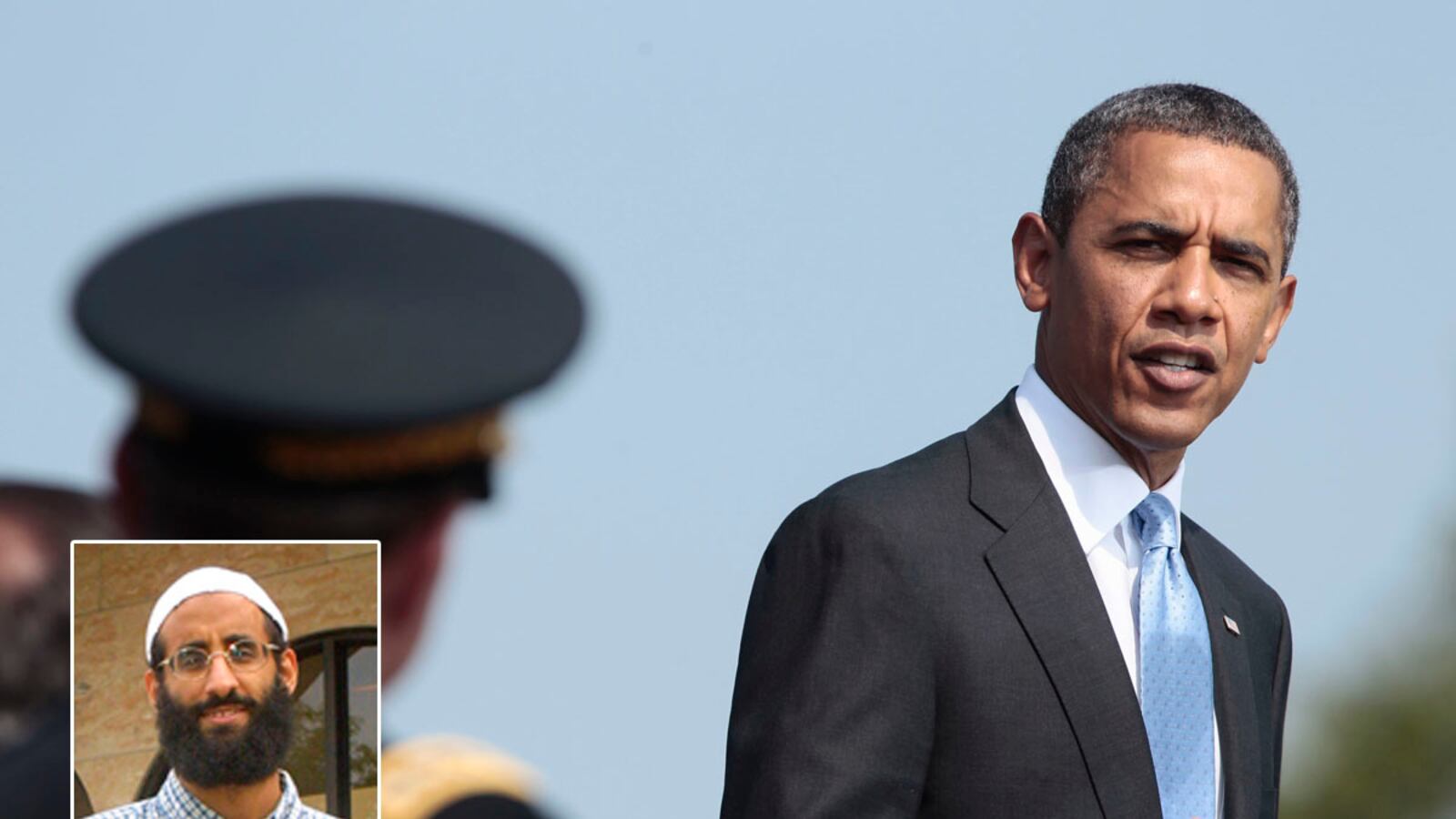President Obama’s targeted killing of Anwar al-Awlaki, who was born in New Mexico and died in Yemen fighting for al Qaeda, is a victory for America and for common sense.
For the first time since the days of Abraham Lincoln, an American president has ordered the killing of a U.S. citizen, far from any battlefield or courtroom.
And like Abraham Lincoln, Obama has saved the constitution and the country by defending it against a nihilistic and narrow reading of the constitution that would prevent the country from protecting itself.
This has shocked the American Civil Liberties Union, Ron Paul, legal scholars, and libertarians, who have long argued that the constitution’s Fifth Amendment, which says that no citizen shall be “deprived of life, liberty, or property, without due process of law” means that the constitution bars killing non-combatants without a trial. Since Awlaki had not been convicted in a proper court or hasn’t been killed while shooting at American soldiers, they contend, his killing is unconstitutional. A side argument, beloved by the ACLU, is that the method of deciding who goes on the CIA target list is secret and therefore an illegal violation of due process.
These are clever arguments, but wrong. Federal courts have rejected the ACLU’s view when it brought a case seeking to bar the listing of U.S. citizens on the CIA’s terrorist hit list. Awlaki’s own father made a similar argument in another court and it too was rejected.
In the first year of the Obama administration, an intense legal and ethical debate raged behind closed doors. Ultimately, the president himself had to decide. A former constitutional law lecturer, Obama knew the stakes. Wars usually tempt presidents into stretching constitutional limits and, initially, he seemed skeptical of targeting U.S. citizens.

Secretary of State Hillary Clinton and then-CIA director Leon Panetta, according to one account related to me, were the “war wing.” They took the hardline view that Americans who seek to kill other Americans can themselves be killed to save lives. After all, it is war. And, the Fifth Amendment was never successfully used in court to limit a president’s war-fighting powers.
Attorney General Eric Holder and other lawyers close to the president took a view similar to the ACLU’s. Congress authorized war in Afghanistan, they said, not Yemen. So the “battlefield exception” does not apply. And killing a U.S. citizen was simply wrong.
After much debate, the president came to a surprisingly balanced legal decision. Awlaki was an “imminent threat” to the lives of Americans and our allies. Based on Awlaki’s links to two 9/11 hijackers, to the leadership of al Qaeda in the Arabian Peninsula (a branch of bin Laden’s outfit), and his key role in propagandizing non-Arabic speakers to join the jihad against America, there is no doubt that he posed a continuing and urgent threat. As evidence accumulated of Awlaki’s links to Major Nidal Hasan (the Fort Hood shooter) and Umar Farouq Abdulmutallab, the so-called underpants bomber who planned to down a Detroit-bound jet on Christmas day, and the Times Square bomber, these developments only confirmed Obama’s view that Awlaki was a clear and present danger.
Next, the president concluded that Awlaki was a leader in an enemy organization that was actively attacking the United States. There is ample constitutional precedent for killing enemy leaders in war time, even if they are U.S. citizens, as Lincoln’s experience shows.
Finally, the president became convinced there was no plausible alternative. The government of Yemen was not going to arrest him. Awlaki’s father had been a minister in President Saleh’s government and was a friend of the ruling family. And Awlaki moved in a remote region that the central government insisted it had no control over. Sending in the SEALs was not a viable option either. Unlike bin Laden, Awlaki did not stay put in a concrete compound—which, in bin Laden’s case, allowed the SEALs to build scale models and practice their assaults. Instead, he moved constantly, meaning the special-forces team would be going into a location that they knew little about. And Awlaki’s protectors were numerous, hardened, and well-trained. Those two factors increased the odds of a deadly failure. Nor was there any reliable way to lure Awlaki to a place where he might easily be captured.
The president was left with two hard options: ignore Awlaki, or kill him in a way that minimizes civilian and American casualties.
Ignoring Awlaki opens a chink in America’s armor. It would teach al Qaeda that all it would have to do to remain immune from American retribution is recruit American followers, which the terror group was already doing. Ultimately, ignoring Awlaki meant allowing innocent Americans to be killed or wounded.
So, after a lot of thought and reflection, and the urging of Clinton and Panetta, the president decided to abandon Awlaki to the traitor’s death that he deserved. Obama decided that the constitution gave the president the power to kill those who make war against the United States, even if they are citizens.
And, federal courts have concurred with the president. The constitution was never meant to safeguard those who would kill to overthrow it.
The Obama administration made no secret of its decision. In June 2010, then-CIA director Leon Panetta told ABC News: “Awlaki is a terrorist, and yes, he’s a U.S. citizen, but he is first and foremost a terrorist and we’re going to treat him like a terrorist. We don’t have an assassination list, but I can tell you this, we have a terrorist list and he’s on it.”
When two CIA drones spotted Awlaki in a speeding vehicle, far from non-combatants, the weeks of careful watching were over. With a single Hellfire missile, Obama ended the life of Awlaki and another American citizen who ran al Qaeda’s English-language magazine, and thus ended the grip of the pernicious legal view that would have made the constitution a suicide pact.






